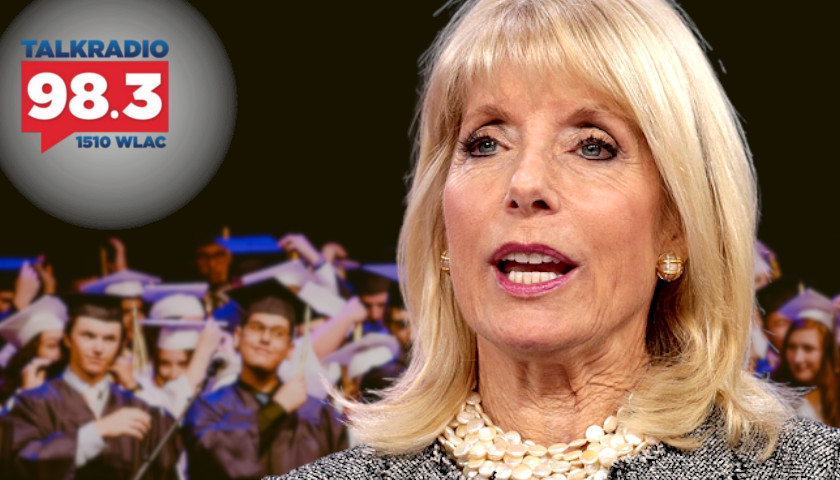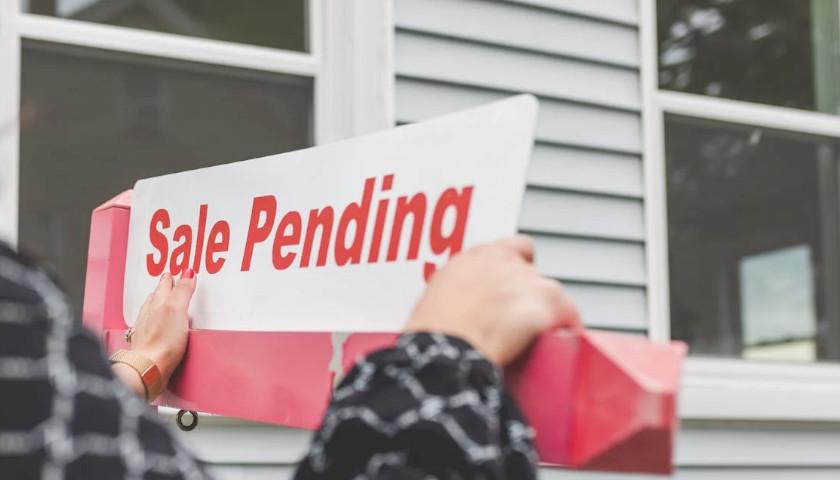Live from Music Row Friday morning on The Tennessee Star Report with Michael Patrick Leahy – broadcast on Nashville’s Talk Radio 98.3 and 1510 WLAC weekdays from 5:00 a.m. to 8:00 a.m. – host Leahy welcomed Fox Business contributor and Wall Street expert Liz Peek on the newsmaker for her reaction and interpretation of how the student loan forgiveness may impact inflation.
Leahy: We are joined on our newsmaker line by a very good friend, Fox News contributor, former Wall Street executive Liz Peak. Good morning, Liz.
Peek: Good morning. Thank you for having me.
Leahy: We’re always delighted to have you here. Of course, the Biden maladministration issued an executive order on Wednesday unilaterally saying they’re going to get rid of $10,000 of student debt.
The press secretary, Karine Jean-Pierre, was unable to tell anybody at a press conference on Wednesday how much that would cost. How much will it cost? Will it be inflationary, Liz?
Peek: (Chuckles) The Committee for the Responsible Federal Budget is saying it will cost about half a trillion dollars. No one seems to know. The question is, how are they going to pay for it? There is no plan to pay for it.
This seems like an unbelievably half-baked gesture aimed at buying both, of course, from younger Americans who don’t think much of Joe Biden and probably people in the age bracket of something like 29 to 50 who are still working and paying off their debts.
But it’s a real slap in the face to two groups: People who are not college graduates, which are over 60 percent of the country, and those people who have worked very hard to pay down their student debts. I think it’ll be challenged in court.
This is a huge amount of money for the White House to sort of single-handedly decide that they’re going to spend. Even some Democrats in Congress, as you’ve probably seen, are rebelling against this and saying no.
Actually, a lot of people in tight races because again, it’s not wildly popular. It’ll be very popular with the people directly who benefit. But I think it’s going to be pretty contentious and I think Biden has overstepped.
But there have been several policies, like, for example, the EPA requiring power plants to get rid of fossil fuels and others like OSHA demanding that big companies require all their employees to be vaccinated and so forth, where the courts have stepped in and said, no, you don’t have the power to do this.
Even Nancy Pelosi, you know, a year ago said no, she didn’t think it was possible for the President to do this. We’ll see. I think there are court challenges that will come down the pike, but I also think it’s really questionable whether this is something that most Americans will applaud.
Leahy: Where do you think inflation is headed, given all of these terrible decisions made by the Biden administration?
Peek: It is definitely off its high. That was 9.1 percent in June and then it went to 8.5. My guess is it’s going to come down a little because the main element pushing inflation has been energy and oil prices are not at the highest that they were.
So that is a very volatile measure. Why are oil prices down? Number one, because China, their economy is not growing very much and they are the number one importer of oil in the world. And when China falters, the demand for oil folders.
And that really has been helpful to the Biden administration because demand came down in prices with it also because guess what? Americans just couldn’t tolerate $5 a gallon of gasoline. A lot of people gave up driving.
They gave up their road trips that they planned for the summer. So demand is down here, too. Oil is a very responsive commodity. It says that when the price goes through the roof, people figure out a way to conserve.
And that is a self-correcting industry. It always has been. So that’s something right now that has been helping inflation, helping Democrats deal with inflation, and helping consumers deal with inflation.
My concern going forward is that natural gas prices are now about double what they were a year ago. And we’re just coming into the sort of leaving the gasoline summer driving season. And now the issue is natural gas, which heats over half of American homes.
And the price of that is just beginning to ratchet up enormously. And by the way, I put that on Biden’s promise too. Biden promised that we would double our LNG exports, which really wouldn’t have been a big issue five or 10 years ago. We didn’t have any. Now they’re substantial.
And even the fawning New York Times, when he made this pledge kind of talk to industry executives, he hadn’t talked to anyone in the industry to see what it would mean, how we would do that, and what it would mean for American consumers.
So if you look at your electricity bills, they’re going up. That’s partly because of the natural gas prices. And if you look at your home heating bill over the next several months, I’m afraid that is going to be the next big element not only in pressuring consumers but also in terms of driving inflation.
Leahy: Now, a few months ago, the stock market went down substantially. It seems to be back up a little bit. What’s the outlook for the stock market over the next couple of months?
Peek: Well, it’ll depend. Everyone’s on tenterhooks, waiting to see what Jay Powell has to say. It seems to me that Jay Powell, the head of the Federal Reserve, has got to come out and sound aggressive on tackling inflation.
That will be, I think, his message today. The market has been going up in hope that the economic data is mixed enough that they will be a little bit less aggressive. I don’t think that’s the case. I think we’re still yes, housing is rolling over, but we still have a very strong jobs market.
I think that’s rolling over, but it’s very hard to see that in the data right now. And I think Powell’s credibility has been so tarnished by being behind the curve, by not being up to speed on inflation, that he has to take a stand. And I think it will be an aggressive stand.
A lot of governors have been out talking about that. We’ll know more later today, but I think there’s still a very big inflationary bias to the economy. It’s going to take some pain to get rid of that. And I think the stock market is going to, unfortunately, take another downdraft when that becomes evident.
Listen to the interview:
– – –
Tune in weekdays from 5:00 – 8:00 a.m. to The Tennessee Star Report with Michael Patrick Leahy on Talk Radio 98.3 FM WLAC 1510. Listen online at iHeart Radio.
Photo “Liz Peek” by Gage Skidmore. CC BY-SA 3.0.





